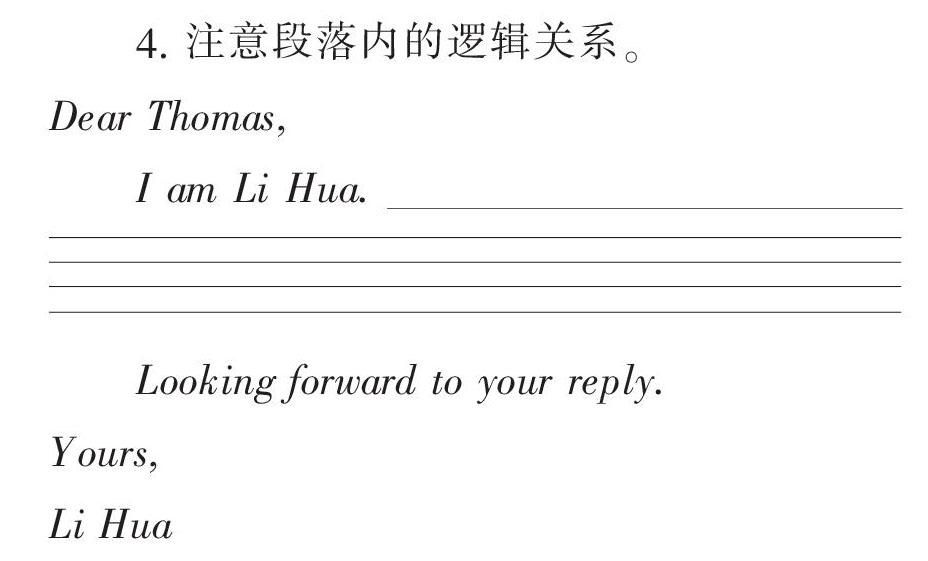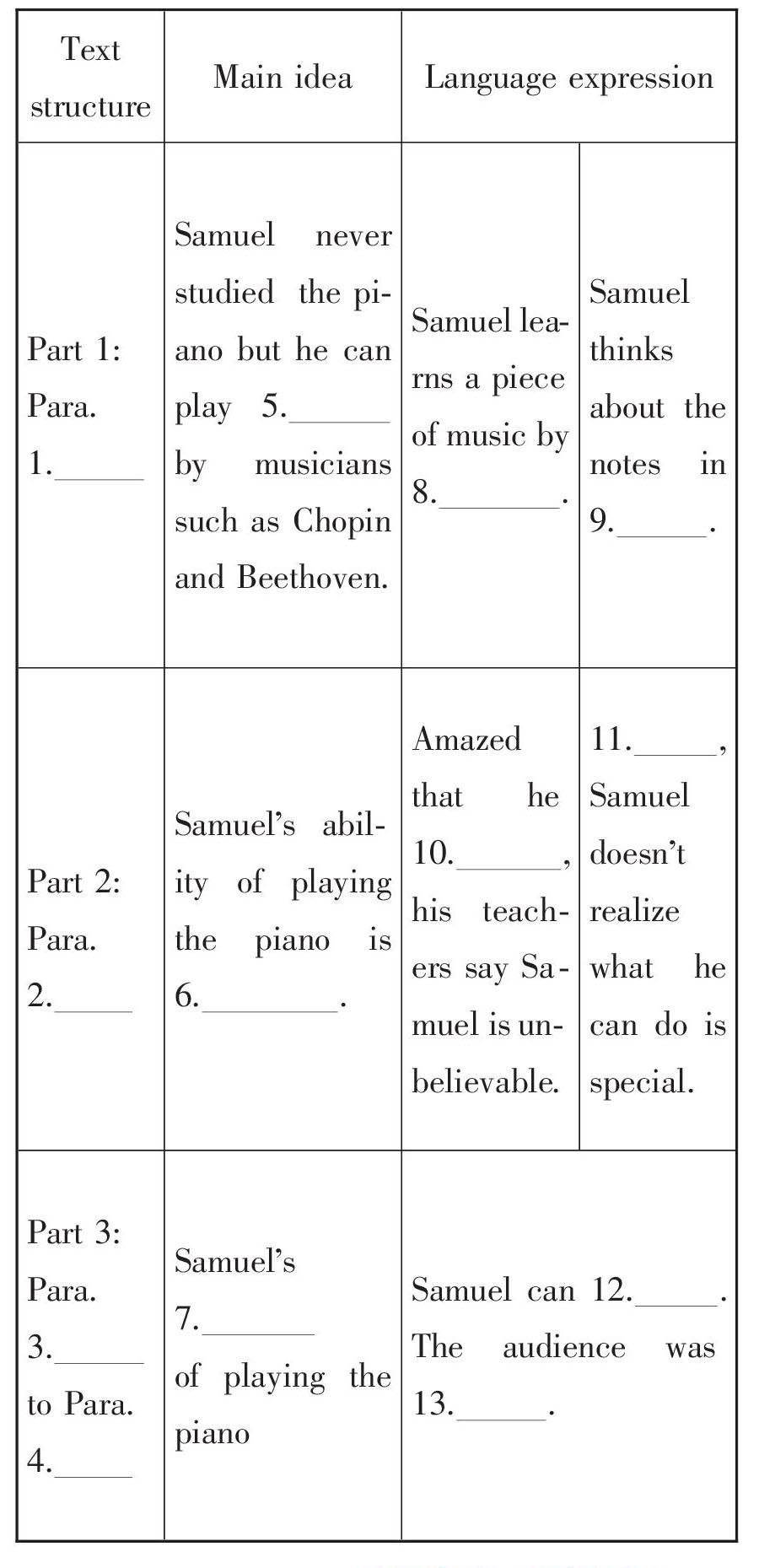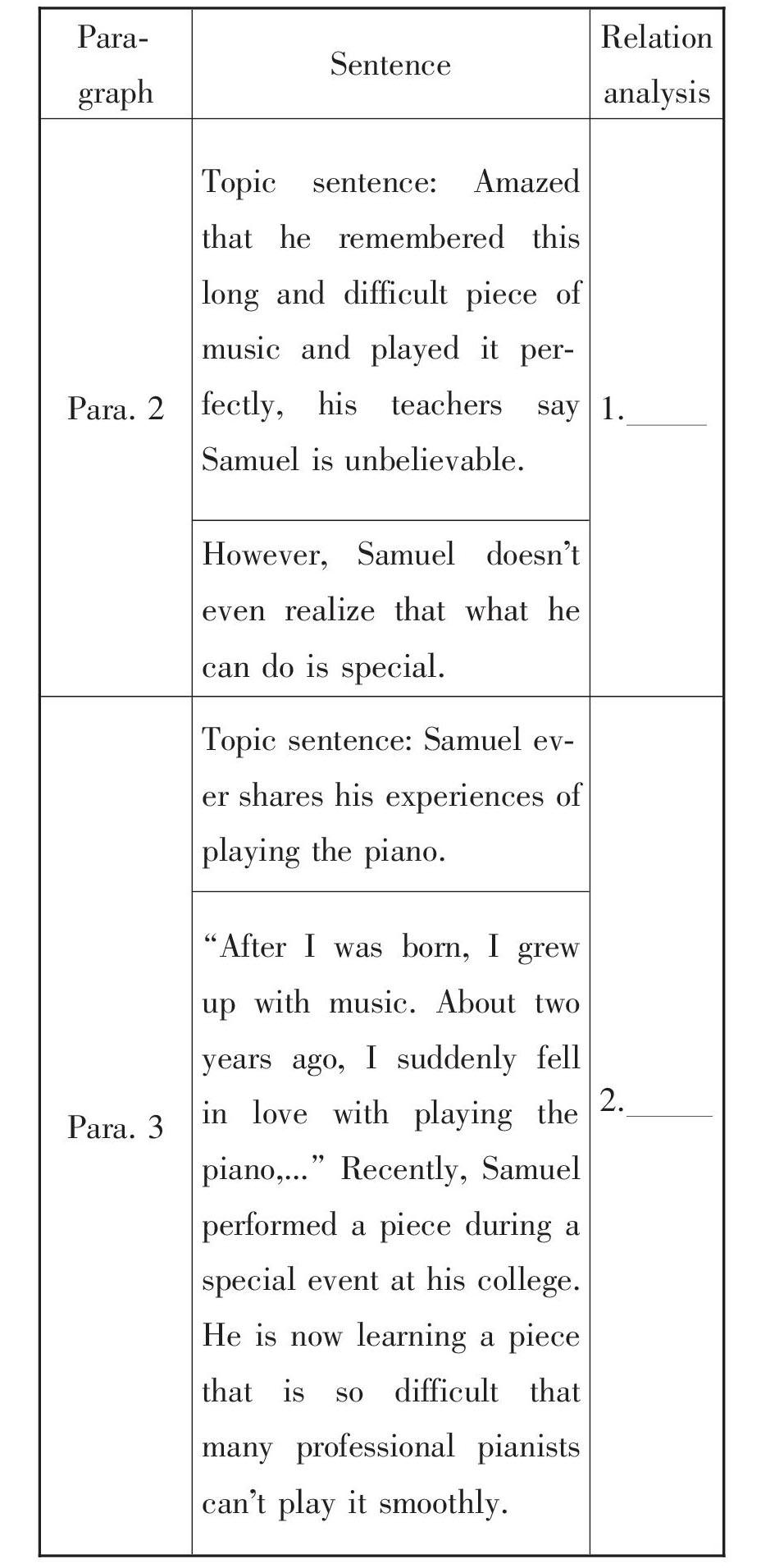A music genius 一名音乐天才



Samuel Osmond is a 19?year?old law student from Cornwall, England. He never studied the piano, but he likes playing it very much. He can play very difficult musical pieces by musicians such as Chopin and Beethoven just a few minutes after he hears them. He learns a piece of music by listening to it in parts. Then he thinks about the notes in his head. Two years ago, he first played Moonlight Sonata(奏鸣曲) by Beethoven, which surprised everyone around him.
Amazed that he remembered this long and difficult piece of music and played it perfectly,his teachers say Samuel is unbelievable. They say his ability is very rare. However, Samuel doesnt even realize that what he can do is special. Samuel wanted to become a lawyer as it was the wish of his parents, but music teachers told him he should study music instead. Now, he studies law and music at the same time as his majors.
Samuel ever shares his experiences of playing the piano. “After I was born, I grew up with music. My mother played the piano and my father played the guitar. About two years ago, I suddenly fell in love with playing the piano,without being able to read music and without having any lessons. It comes easily to me—I hear the notes and can bear them in mind—each and every note,” says Samuel. Recently,Samuel performed a piece during a special event at his college. The piece had more than a thousand notes. The audience was impressed by his amazing performance. He is now learning a piece that is so difficult that many professional pianists cant play it smoothly. Samuel says confidently,“Its all about super memory and the passion for it—I guess I have both of them.”
Samuel is still only a teenager. He doesnt know what he wants to do in the future. For now, out of strong love of music, he is just happy to play beautiful music and continue his studies at the college.
Activity A Reading for understanding
Ⅰ. Text?centered chunks
play the piano 弹钢琴
bear sth in mind 记住;牢记
be impressed by 对……印象深刻
Ⅱ. Text?centered sentences
一、非限制性定语从句
Two years ago, he first played Moonlight Sonata by Beethoven, which surprised everyone around him. (Para. 1) 两年前,他第一次彈奏了贝多芬的《月光奏鸣曲》,惊艳了他身边的每一个人。
【点石成金】非限制性定语从句“which surprised everyone around him”对应的先行词是句子“he first played Moonlight Sonata by Beethoven”,此时定语从句的引导词要用which,且要用逗号隔开。
【运用迁移】杰克没有按时完成工作,这使得他的老板非常生气。
二、结果状语从句
He is now learning a piece that is so difficult that many professional pianists cant play it smoothly. (Para. 3) 现在他在学一首非常难以至于许多专业钢琴家都不能顺利弹奏的曲子。
【点石成金】该句为复合句。句中含有so...that...结构,意为“如此……以至于……”,that引导结果状语从句。
【运用迁移】他在短时间内完成了这么多的任务,每个人都认为这是一个奇迹。
Activity B Reading for writing
假定你是李华,国庆假期将至,不同的人有不同的安排。有的人喜欢待在家里,有的人喜欢外出旅游。请你写一封信给外国朋友Thomas,谈谈你的看法。内容要点:
1. 一些人的观点;
2. 其他人的观点;
3. 你的看法。
注意:
1. 词数80左右;
2. 可以适当增加细节,以使行文连贯;
3. 至少需要使用一个非限制性定语从句或结果状语从句;
4. 注意段落内的逻辑关系。
Dear Thomas,
I am Li Hua.
Looking forward to your reply.
Yours,
Li Hua
写作导引
本次写作是一篇观点分析信,要求学生向外国朋友介绍人们在国庆假期的相关情况,如不同的人有不同的计划等,并且需要使用非限制性定语从句或结果状语从句。这些写作要求和所给语篇的主题语境是紧密相关的。我们可以通过分析、整合阅读材料的内容和语言,拓展素材,从而梳理写作思路。
一、语篇解码
(一)内容分析
What is the text mainly about?
(二)宏观结构
Fill in the blanks according to the text.
(三)段内关系
Choose the best answers according to the relation in Para. 2 and Para. 3.
A. Progressive(递进的).
B. Causal(因果的).
C. Contrastive(对比的).
D. Deductive(演绎的).
二、素材积累
(一)观点分析信的核心表达
1. in contrast 相反;相比之下
2. compared with... 与……相比
3. Different people have different opinions about it. 人们对此看法不一。
4. Most people are in favor of the idea. 大多数人赞同该想法。
5. However, some are against the idea. 然而,有些人反对这个观点。
6. In my opinion, everything has its strengths and weaknesses. 在我看来,万事都有其优缺点。
7. Recently our class has had a heated discussion about whether people should travel outside on National Day. 最近,我们班就国庆节是否该外出旅游进行了激烈的讨论。
三、写作支架
Dear ,
Im writing to tell something about
(社会现象) to you.(写作目的) Different people have different opinions about it.(阐述观点)
Some think...(一方观点) First and fore?most, ... In addition, ... Last but not least, ...
However, some think...(另一方观点) To begin with, ... More importantly, ... Last but not least, ...
In my opinion...(个人观点)
Yours,
Li Hua
四、语篇过手
在构思观点分析信的语篇框架时,应注意第一段要及时说明写信的目的——告知对方自己要谈及什么话题;第二段描述一方的观点;第三段描述另一方的观点;总词数控制在80左右(64~96词之间)。
同时,学习运用前文阅读材料中出现的非限制性定语從句或结果状语从句等高级句型,并关注段内关系,如空间关系、时间关系或逻辑关系,需要注意使用恰当的连词。

